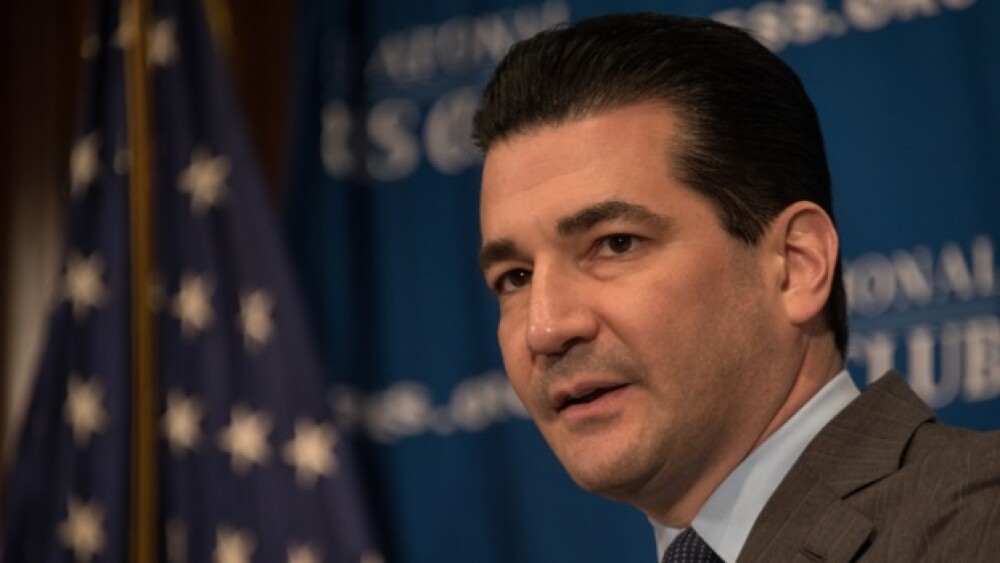During his relatively brief tenure as Commissioner of the U.S. Food and Drug Administration (FDA), Scott Gottlieb has worked to streamline and advance guidelines for clinical trials. As something of a parting shot, Gottlieb made a statement criticizing the industry’s reluctance to take advantage of them.
Albert H Teich / Shutterstock.com
During his relatively brief tenure as Commissioner of the U.S. Food and Drug Administration (FDA), Scott Gottlieb has worked to streamline and advance guidelines for clinical trials. As something of a parting shot, Gottlieb made a statement criticizing the industry’s reluctance to take advantage of them.
He stated that “modernizing clinical trials is an agency wide priority,” but “these opportunities can be delayed or stymied by a clinical research enterprise that is often extraordinarily complex and expensive. Efforts to streamline medical product development based on advancing science can be frustrated by legacy business models that discourage collaboration and data sharing, and the adoption of disruptive technologies that make clinical research more effective.”
In support of his arguments, Gottlieb provided a link to an Outsourcing-Pharma article quoting Janet Woodcock, director of the FDA’s Center for Drug Evaluation and Research. In it, she stated, “We must bridge clinical research and healthcare or the enterprise is going to fall down. There is just no choice.”
In that article, Woodcock also noted that only about 15 percent of guideline recommendations are based on evidence from trials or actual data. The argument being, that while the industry can be very innovative, it isn’t very good at evaluating its effectiveness.
“We keep trying things and changing things, but we aren’t ever really sure whether we’ve gone in the right direction or taken a step backward,” Woodcock stated.
Gottlieb said, “Unfortunately, we’ve seen a continued reluctance to adopt innovative approaches among sponsors and clinical research organizations. In some cases, the business model adopted by the clinical trial establishment just isn’t compatible with the kind of positive but disruptive changes that certain innovations can enable. We appreciate the scientific and technical complexity is a real and ongoing challenge, but industry and academia also need to invest in and leverage these approaches and develop new incentives that reward collaboration and data sharing across the clinical research enterprise.”
And it does seem as if the FDA has been regularly updating its trial guidelines during Gottlieb’s tenure, which of course, does not mean it’s easy for biopharma and medical device companies to quickly adapt to the changes. Just this week, for example, the FDA published four draft guidance for cancer clinical trial eligibility criteria and one final draft on adolescents in adult oncology trials.
Today, the agency released additional guidance on strategies to support precision medicines and risk-based monitoring. It has also released a final guidance, Severely Debilitating or Life Threatening Hematological Disorders; Nonclinical Development of Pharmaceuticals (SDLTHDs).
Gottlieb stated, “This guidance is intended to streamline the development of pharmaceuticals used to treat patients with SDLTHDs, other than cancer, while protecting patients’ safety and avoiding unnecessary use of animals in the conduct of trials.”
It’s true that drug developers are interested in technology-enabled integration of clinical trials into routine healthcare, and mobile technologies might help that. This weekend, for example, Stanford University researchers will kick off the American College of Cardiology annual meeting in New Orleans by presenting data from a study of more than 400,000 patients using the Apple Watch to determine if it can accurately detect heart rhythm problems.
Despite efforts in that direction, Gottlieb does recognize that structural barriers still remain. Much of the guidelines Gottlieb describes lay the foundation for changes in approaches to clinical trials, but it’s probably either naïve or wildly optimistic to think that the biopharma industry will be able to pivot on a dime to comply with all of them immediately.





